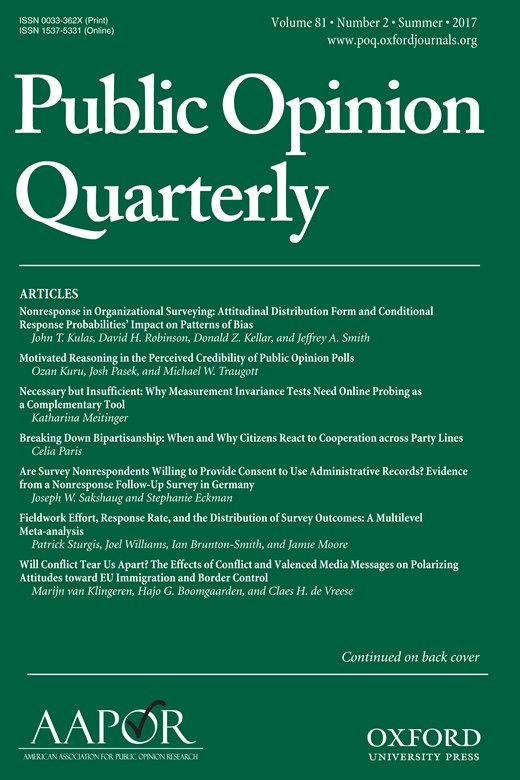-
Views
-
Cite
Cite
Joseph W. Sakshaug, Stephanie Eckman, Are Survey Nonrespondents Willing to Provide Consent to Use Administrative Records? Evidence from a Nonresponse Follow-Up Survey in Germany, Public Opinion Quarterly, Volume 81, Issue 2, Summer 2017, Pages 495–522, https://doi.org/10.1093/poq/nfw053
Close - Share Icon Share
Abstract
To mitigate the effects of low survey participation rates and possible nonresponse bias in survey estimates, survey organizations often try to collect auxiliary information with which to evaluate and possibly adjust for differences between respondents and nonrespondents. Call record data and other forms of paradata are commonly used for this purpose, but these data tend to be only weakly correlated with the survey items. Follow-up surveys conducted with nonrespondents try to get around this issue by asking a subset of key items selected from the original questionnaire. However, intensive follow-up procedures are expensive and have other known limitations. In this article, we explore an alternative follow-up procedure that simply asks nonrespondents for consent to use their administrative records in lieu of taking part in a telephone survey interview. Utilizing a unique study design with administrative records available for the overall study sample, we examine characteristics of telephone nonrespondents who consent to record use in a mail follow-up survey. Interestingly, we find that many telephone nonrespondents are willing to grant access to their administrative records. These consenting nonrespondents are similar to the remaining survey nonrespondents, yet different from the telephone survey respondents, which results in reduced nonresponse bias for some key economic items. We discuss the practical implications of these findings and offer some suggestions for incorporating the collected administrative data in nonresponse bias evaluation and adjustment procedures.





